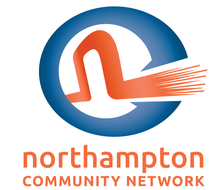Note: to clarify, if the City builds a municipal network, you will not be required to join it. If you are happy with Comcast or wireless ISPs locally, you can keep them.
In our last post, we looked at the Infrastructure as a Service (IaaS) model for municipal networks. With this model, potentially any Internet Service Provider (ISP) could serve customers on the City’s network, providing they adhere to the City’s rules for using the network. In the first phase of its study for the City, Design Nine recommended this approach. It said it would elaborate more on it in the next phase of its study that is currently underway.
IaaS is a new model for organizing municipal networks. In this model, the City’s role is mainly to provide the communications infrastructure to residents and businesses. Currently many municipal networks provide both infrastructure and assume the role of exclusive internet service provider.
Infrastructure vs. Internet Service Providers
What’s the difference between the infrastructure and providing internet services? The infrastructure is the medium used to bring information into the premises. For example, Comcast’s infrastructure to your home is coaxial cable.
Comcast’s infrastructure can be used for more than the Internet. You also get cable TV on it or its telephone services. Part of the cable’s bandwidth is allocated for each of these uses. But it all belongs to Comcast because they own the whole thing.
Comcast is also the ISP because you can use it to access Internet services like browsing the web and using email.
The City could forgo the suggestion to offer IaaS, and become the sole ISP on the municipal network just as Comcast is now on their network.
Here are some of the pros and cons we see for the City being the ISP.
Some advantages of the City as an ISP
- The City is accountable for any problems or issues that arise. You don’t have to figure out if an issue is the City’s fault or an ISPs fault. There’s no finger pointing between different entities. If you are unhappy with the service or support you’re getting, you can complain to the mayor, your city councilor or the oversight board.
- Local control. If you want the network to offer different services or to change its policies, you can petition the City. Citizens, through an oversight board, could decide on network policies like net neutrality, privacy, no data caps and fast upload and download speeds for everyone.
- More affordable. The City is likely to be less concerned (or not at all concerned) with making a profit. It is likely to be a nonprofit organization. Excess revenues can be used to either lower prices or to improve services.
- Transparent. The City is more likely to be transparent in their operations than a private company.
- Money goes back into the community. Jobs to run the network will be local, and possibly be secure civil service jobs with benefits. Salaries of employees would more likely be spent locally.
- City services. The City could use the network for emergency and other services, perhaps allowing real-time metering of electric usage, gas usage, water usage, severe weather monitoring, security monitoring, emergency network broadcasts and faster access to emergency services. For example, a 911 service might be accessible over the network.
Some disadvantages of the City as an ISP
- Fewer customized services. Allowing multiple ISPs on a City’s network allows ISPs to innovate, potentially offering services or benefits the City cannot, or cannot offer as quickly. These could include rebates and perhaps discounts on services like Netflix. We would go from a monopoly to a duopoly which is an improvement but still not an open market.
- IaaS may be cheaper. Cities which use the IaaS model like Ammon, Idaho seem to be less expensive overall because they allow competing ISPs on the network. More competition creates a downward pressure on prices.
- Pay for what you need. Many users may not want super-fast upload or download speeds and won’t want to pay extra for it. Non-city ISPs might offer more options including slower download speeds and bandwidth caps, which may be a better deal for these users. Note that the City could offer plans like these too.
- Insufficient expertise. Solving complicated technical issues may be beyond the abilities of those managing the network. For example, a business may need guarantees for consistent bandwidth and system uptime that the City may not have the expertise to provide. Providing great customer support is non-trivial, and it may take the City a while to develop that capability.
- Poor governing could harm the network. Since the City will have the final say about the network, if poor or corrupt leadership should come to power in Northampton, the quality, success and viability of the network could be compromised.
- Taxpayers could be on the hook to bail out the network. If the City fails to make the network viable and it fails, taxpayers would be responsible for repaying debts the failed network leaves behind.
- Agile response. The City may not be agile enough to quickly adapt to changed circumstances. For example, it may have a hard time quickly adding more connections to external providers as demand for remote content escalates.
- Bureaucracies. Some government bureaucracies are inefficient and unresponsive. The network would likely have a governing board, which would have to approve changes to the network’s policies. Such changes could take months, whereas an external ISP may be able to move more quickly.
All of these potential disadvantages could be mitigated by careful planning, organization and design. We’ll address these concerns in future posts.
